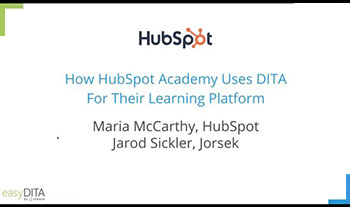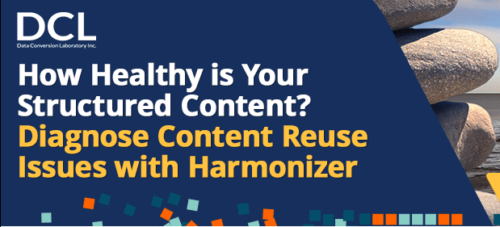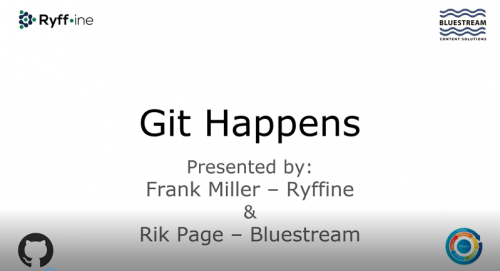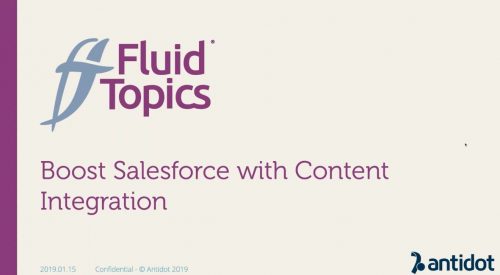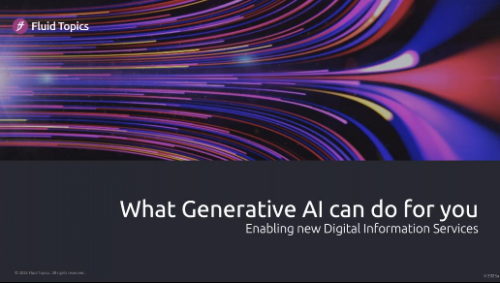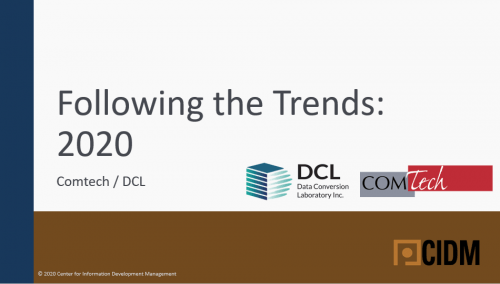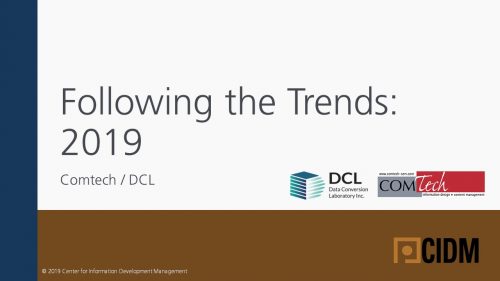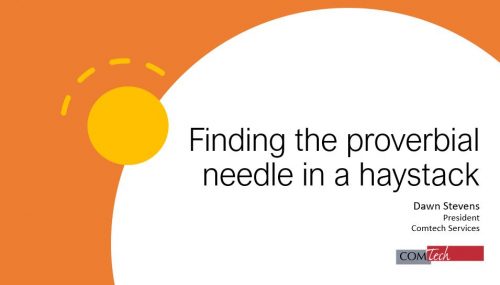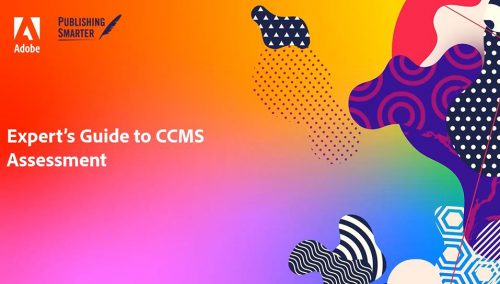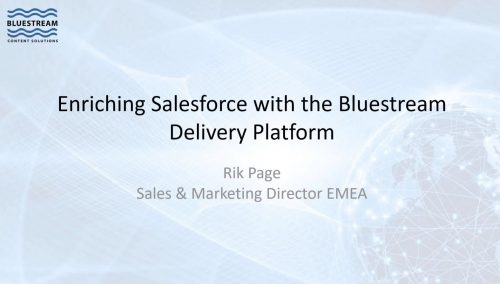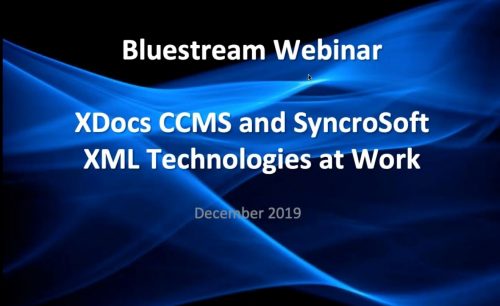- Complete lessons, courses, and certifications
- Learning assessments
- Powerpoint outputs
- And localizing that content in five languages
-
November 18, 2020 Learn how HubSpot Academy, the world’s leader in providing inbound sales, marketing and customer service education, adopted DITA to help solve their content creation, conversion and output needs. HubSpot’s use case is exciting and unique as it pushes the boundaries of what we typically associate with DITA. Rather than producing typical technical documentation, HubSpot is using DITA to produce:
-
Recorded on August 3, 2022
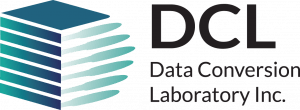
Harmonizer is a powerful tool created by Data Conversion Laboratory that analyzes large document collections to identify content reuse across multiple content sets and source formats. Understanding the volume and nature of duplication in content is invaluable to effectively implement a reuse-based content model like DITA or S1000D. Harmonizer dives deeper into content analysis and can evaluate, identify, and report not only on duplication at the paragraph level but also duplication within specific XML elements such as topics, tasks, concepts, etc. Flexibility in the level of comparison is particularly useful for performing periodic health checks on structured content to diagnose reuse issues or other issues that can arise after DITA or S1000D conversion.
This webinar will demonstrate Harmonizer’s role in performing a health check and speak to use cases that are important for any organization who has invested in DITA or S1000D. Christopher Hill, product manager for Harmonizer and structured content expert, will also detail new licensing models for the software that enable self-serve content health checkups that improve documentation workflows and ensure your investment in markup continues to return healthy results.
Presented by: Christopher Hill, Technical Product and Project Manager at Data Conversion Laboratory – [email protected]
Christopher Hill has 18 years of experience working in publishing and content management. He started his career as a high school teacher but moved into the world of corporate training teaching a range of software and XML courses. He has written and conducted many training courses, was a founding employee of one of the first hosted content management systems and lead the user experience redesign for an enterprise CMS. He now manages the Harmonizer product for Data Conversion Laboratory.
Christopher Hill, Technical Product and Project Manager at Data Conversion Laboratory – [email protected]
Christopher Hill has 18 years of experience working in publishing and content management. He started his career as a high school teacher but moved into the world of corporate training teaching a range of software and XML courses. He has written and conducted many training courses, was a founding employee of one of the first hosted content management systems and lead the user experience redesign for an enterprise CMS. He now manages the Harmonizer product for Data Conversion Laboratory.
-
June 16, 2020 Unlike a decade ago, organizations face few barriers to entry if they want to develop structured content in a DITA-based ecosystem. The increasing adoption of Git as a content platform, and the maturing of DITA-focused products like oXygen have removed many of the cost barriers to implementing DITA in an elegant and scalable way. Whether a stop on a longer-term transition to a CCMS or the final destination, a mostly open-source DITA tool chain can be a valuable proving ground for a sophisticated content strategy. In this presentation, you’ll learn how process, information design, scalable repository design, and smart use of oXygen and Git can be more than a short-term solution. You will also learn where Git falls short and when you should be using a DITA CCMS. Presented by: Frank Miller president/ founder of Ryffine is an industry thought-leader whose career has focused on leading enterprise client engagements and building an information development community, Frank has been involved in dozens of successful DITA implementations. In addition to partnering with many leading names in the information development and content management spaces, Frank enjoys sharing his insights on trends and facilitating the adoption of best practices throughout the community. Presented by: Rik Page is EMEA Sales and Marketing Director at Bluestream Software and has been working with both component content and document management solutions since 200. During this time, he has worked with custom DTDs and Schemas, S1000D, iSpec2200 and since 2005 DITA. Rik's practical experience ranges from data capture/content creation through to dynamic multichannel delivery. This has been achieved in a wide range of industries including banking and finance, manufacturing, central government, and education. A keen advocate of technology and innovation Rik has taken part in multiple consultancy projects and helped formulate solutions all over the world.
-
February 6, 2019 With Salesforce supporting many customer-centric processes, it must be able to leverage the technical documentation that’s needed to increase efficiency of these processes. And yet, despite being built around a comprehensive and extensible data model, Salesforce is not equipped for storing and delivering technical content. So what should you do when you are asked to integrate tech doc inside Salesforce? Fortunately, options are available for solving this challenge and making relevant technical content available to support staff and customers. Presented by: Fabrice Lacroix is a known Web pioneer and the founder of Antidot, the company that puts enterprise content to work. As an entrepreneur, he has been working for 25 years on the development of the Internet and of the Web through several major companies.
-
Recorded on September 13, 2023
 Beyond the hype, what can GenAI truly do for you today? In this webinar, we will unveil six practical use cases showcasing the remarkable impact of AI in revolutionizing the world of Tech Doc.Join Fabrice Lacroix, CEO of Fluid Topics, in an insightful talk supported by two decades of research and development in LLM and AI. Gain valuable knowledge on how to enhance the tech doc workflow, from content creation to validation, translation, publishing, searching, and reading.
Beyond the hype, what can GenAI truly do for you today? In this webinar, we will unveil six practical use cases showcasing the remarkable impact of AI in revolutionizing the world of Tech Doc.Join Fabrice Lacroix, CEO of Fluid Topics, in an insightful talk supported by two decades of research and development in LLM and AI. Gain valuable knowledge on how to enhance the tech doc workflow, from content creation to validation, translation, publishing, searching, and reading.Presented by Fabrice Lacroix
 Fabrice Lacroix is a serial entrepreneur and a technology pioneer. He has been working for 25 years on the development of innovative solutions around search technology, content enrichment and AI. He is the founder of Fluid Topics, the leading Content Delivery Platform that reinvents how users search, read and interact with technical documentation.
Fabrice Lacroix is a serial entrepreneur and a technology pioneer. He has been working for 25 years on the development of innovative solutions around search technology, content enrichment and AI. He is the founder of Fluid Topics, the leading Content Delivery Platform that reinvents how users search, read and interact with technical documentation. -
May 12, 2020 In its eighth year of collecting data, the Center for Information-Development Management (CIDM) and Data Conversion Laboratory (DCL) asked managers, information architects, writers, training developers, and more how they are addressing the challenges of meeting customer information needs. During the webinar we walk through the results of the 2020 Trends Survey, a study we have been conducting since 2012. We trace the changes in how we think about developing and delivering content. Learn how others in the information-development community are planning to respond to new customer demands for innovative approaches to development and delivery. Presented by: Dawn Stevens, President, Comtech Services and Director of CIDM has 28 years of practical experience in virtually every role within a documentation and training department, including project management, instructional design, writing, editing, and multimedia programming. Dawn is the perfect advisor to identify and remove the challenges you face in producing usable, technical information and training content. With both engineering and technical communication degrees, Dawn combines her solid technical foundation with strong writing and design skills to lead our team of consultants and specialists in providing the expertise you need. Mark Gross, President, Data Conversion Laboratory, is a recognized authority on XML implementation and document conversion. Mark also serves as Project Executive, with overall responsibility for resource management and planning. Prior to joining DCL in 1981, Mark was with the consulting practice of Arthur Young & Co. Mark has a BS in Engineering from Columbia University and an MBA from New York University. He has also taught at the New York University Graduate School of Business, the New School, and Pace University. He is a frequent speaker on the topic of automated conversions to XML and SGML.
-
April 30, 2019 Consumers have more avenues than ever before to find the content they need. Are you trying to decipher how content trends are impacting your business? Do you need to respond to a rapidly changing digital marketplace? Join us to discover how changing content development and delivery requirements are affecting your business today. Learn how others in the information-development community are planning to respond to new customer demands for innovative approaches to development and delivery. In its seventh year of collecting data, the Center for Information-Development Management (CIDM) and Data Conversion Laboratory (DCL) asked managers, information architects, writers, training developers, and more how they are addressing the challenges of meeting customer information needs. During the webinar we walk through the results of the 2019 Trends Survey, a study we have been conducting since 2012. We trace the changes in how we think about developing and delivering content. Presented by: Dawn Stevens, President, Comtech Services and Director of CIDM has 28 years of practical experience in virtually every role within a documentation and training department, including project management, instructional design, writing, editing, and multimedia programming. Dawn is the perfect advisor to identify and remove the challenges you face in producing usable, technical information and training content. With both engineering and technical communication degrees, Dawn combines her solid technical foundation with strong writing and design skills to lead our team of consultants and specialists in providing the expertise you need. Mark Gross, President, Data Conversion Laboratory, is a recognized authority on XML implementation and document conversion. Mark also serves as Project Executive, with overall responsibility for resource management and planning. Prior to joining DCL in 1981, Mark was with the consulting practice of Arthur Young & Co. Mark has a BS in Engineering from Columbia University and an MBA from New York University. He has also taught at the New York University Graduate School of Business, the New School, and Pace University. He is a frequent speaker on the topic of automated conversions to XML and SGML.
-
August 26, 2021 With the plethora of content available to users today, it’s often a wonder that they are able to find any relevant information to their queries. In fact, it’s the most common complaint Comtech hears when conducting user studies for our clients: “I can’t find what I’m looking for in a reasonable amount of time.” What can we as technical writers do to address that complaint? We hear a lot about taxonomies and metadata and their potential influence in making our content more findable. However, Google uses over 200 ranking factors in its search algorithm that go well beyond this basic categorization. Surprisingly, a significant number of these ranking factors fall clearly within the realm of a technical writer’s responsibilities. In this rapid fire webinar, Dawn presents dozens of proven and speculative factors that you as a technical writer can address to optimize your content for findability. Presented by: Dawn Stevens is the President, and owner of Comtech Services and the Director of the Center for Information-Development Management. With over 32 years of experience, including 20 years at Comtech, Dawn has practical experience in virtually every role within a documentation and training department, including project management, instructional design, writing, editing, and multimedia programming. With both engineering and technical communication degrees, Dawn combines a solid technical foundation with strong writing and design skills to identify and remove the challenges her clients face in producing usable, technical information and training.
-
March 24, 2021 Every organization has different content management needs. The needs can be pretty broad or hyper-focused. Everybody has different expectations around the user interface, but the underlying requirements are always based on rich capabilities around legacy content ingestion, authoring, metadata management, storage, delivery, and more. Developing a content strategy is crucial to the success of your CCMS project. Core components help focus your questions, create detailed use cases, and identify candidate departments and content to help assess a CCMS. When you start a CCMS assessment, you should have a comprehensive set of parameters to guide you. It is very important to make the proper discovery and choose the solution which is the right fit. Otherwise, energy is expended to force-fit a solution which usually leads to frustration and wasted resources. Join Divraj Singh, Sr. Solutions Consultant at Adobe, in a conversation with Bernard Aschwanden, CEO at Publishing Smarter, whose organization has done multiple CCMS migrations, to understand the following parameters which will make a CCMS evaluation process easy. They will be leveraging Adobe’s CCMS solution –XML Documentation for Adobe Experience Manager, to showcase some of these workflows.
- What difference does authoring standard make (unstructured, XML, DITA, HTML etc.)?
- How advanced are the content management capabilities (web vs offline, metadata support, advanced search)?
- How does the solution provision for storage (versioning, DAM capabilities etc.)?
- What OOTB workflows does the solution support (review, translation, task management, content ingestion, etc.)?
- What reporting capabilities does it have?
- What publishing capabilities does it provide(DITA OT, integrated tools, third-party plug-ins)?
- How extensible is the solution (APIs, DITA specializations, integration with external systems)?
Bernard Aschwanden is the Founder of Publishing Smarter. Bernard Aschwanden and his company Publishing Smarter help clients reduce costs and improve the quality of content. A past President of the Society for Technical Communications, he trains, writes, and presents on communications, publishing, and single-source reuse. Publishing Smarter helps companies automate content processes to publish better, faster, and smarter and provide a maximum return on investments. Bernard on LinkedIn: https://www.linkedin.com/in/bernardaschwanden/ Bernard on Twitter: https://twitter.com/aschwanden4stc https://twitter.com/publishsmarter Website -
April 11, 2019 Salesforce is ubiquitous. It is being used to drive self-service portals, support internal staff, increase sales, and much more. However, Salesforce can now be made more powerful and give you even greater competitive advantage. Whether you are using Sales Cloud, Service Cloud, Marketing Cloud, or Community Cloud, you are sharing your information. Bluestream will show how you can help your customers to easily find great support information through community searches, right beside your community forums, blog posts, and Salesforce KB articles. Dynamically update content through Bluestream’s end-to-end solution. Use XDocs’ sophisticated tags to customize information based on user profiles, permissions, and languages, and deliver customer- and configuration-specific documents, policies, or procedures. Presenter: Rik Page is Sales and Marketing Director at Bluestream Software and has been working with both component content and document management solutions since 2001. During this time he has worked with custom DTDs and Schemas, S1000D, iSpec2200 and DITA. His experience covers a wide range of industries including education, banking and finance, manufacturing and healthcare. A keen advocate of technology and innovation Rik has taken part in multiple consultancy projects and helped formulate solutions all over the world.
-
December 4, 2019 In this webinar, Bluestream will show how advanced integration with oXygen Author and Editor throughout the content lifecycle can greatly help everyone involved in creating content. From content creation, review, branching and merging, release management and delivery via Oxygen Chemistry and Oxygen WebHelp Bluestream will show what the future is bringing. Presented by: Nenad Furtula a Partner, and VP of Sales and Marketing at Bluestream Database Software. Nenad has been working with XML and bringing XML related products to market for over 15 years. Currently his primary professional interest lies in building and socializing a DITA-enabled component content management system called XDocs. Nenad holds a BBA from Capilano University and MSc (Computer Science) from Dalhousie University.
-
July 21, 2021 With this webinar, we are pleased to announce the release of the first-ever e-learning course to train technical writers and subject matter experts on the use of Simplified Technical English (STE), the global standard for writing clear and concise content. Most of the world’s leading companies have accelerated their digital transformation efforts during the pandemic—efforts that are not slowing down. Content plays a key role in digitalization, as it has an important impact on the customer experience, where good quality content will help grow and create new business and service models and ensure safe product use. Because of this key role, it is important that global writing teams learn how to write content that is accurate, clear, aligned, and easy to find by their customers. Through STE companies can maximize the value of their enterprise content, whether this is for technical documentation, marketing, or support. Technical writers will be able to further improve their skills and show industry credibility through an e-learning course, which one could do at any time and from any location. During this webinar, participants will learn more about STE, the values it brings, and how this e-learning course will help you create the best possible content. Presented by: Berry Braster has been in the technical documentation field for over 18 years and has helped implement content strategies, including the use of DITA and HyperSTE controlled language software. As Technology Director, Berry is involved with connecting technical documentation to IoT, and how to leverage on technologies like Augmented and Virtual Reality.

